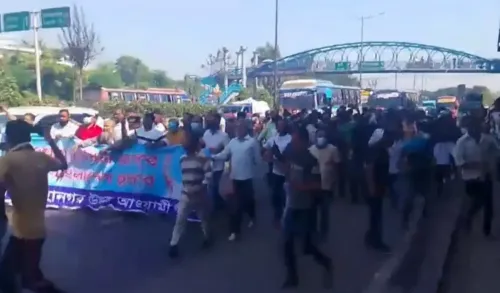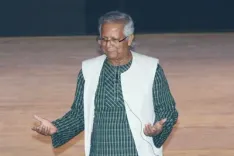NIA Detains Suspected Associate of Jaish-e-Mohammed in Hooghly District, West Bengal

Kolkata, Dec 13 (NationPress) The National Investigation Agency (NIA) took a young man into custody on Friday from the Sanapara locality in Hooghly district of West Bengal, suspecting him of having ties to the terrorist organization Jaish-e-Mohammed, an official reported.
The detained individual has been named Sabiruddin. Sources familiar with the situation indicated that a substantial sum of cash, a mobile device, and a laptop were confiscated from his home.
He has since been transferred to the NIA office in Kolkata. Reports state that the NIA's actions in Arambagh were part of coordinated raids conducted across 19 different locations in eight states, including West Bengal, Bihar, Assam, Uttar Pradesh, Rajasthan, and Jammu and Kashmir.
The apprehension of the suspected Jaish-e-Mohammed affiliate is particularly significant at this moment, as both central and state security and intelligence agencies have intensified monitoring in various border regions of West Bengal, especially those adjacent to Bangladesh, due to the ongoing crisis there.
Moreover, there are intelligence reports indicating that members of the Bangladesh-based extremist group Hizb-ut-Tahrir (HUT) are becoming increasingly active in the border districts of West Bengal and are attempting to establish sleeper cells in these areas.
There are also intelligence inputs regarding a recent surge in the number of outsiders renting accommodations in villages near the international border with Bangladesh.
According to intelligence assessments, most of these newcomers are between their mid-twenties and early thirties. Feedback from local residents suggests that these individuals seldom engage with the local community.
Additionally, intelligence sources have confirmed that two active HUT operatives recently entered West Bengal with legitimate Bangladeshi passports, posing as students, and met with local youths in the Malda and Murshidabad districts.
The two HUT agents, identified as Ridwan Maruf and Sabbir Amir, initially approached local youths in these areas to discuss religious topics, gradually progressing the conversation to the establishment of sleeper cells in the bordering regions.









